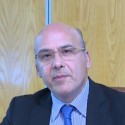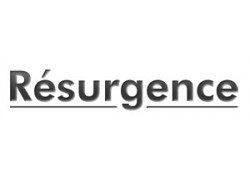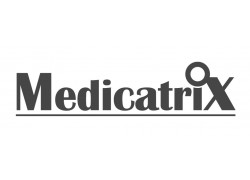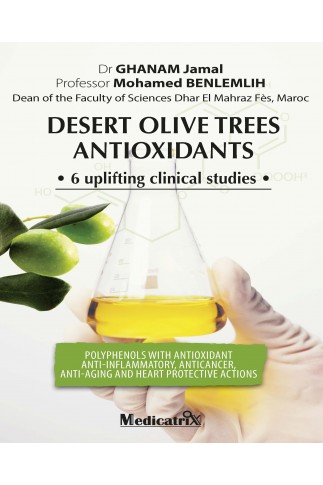Desert Olive Trees Antioxydant - 6 uplifting clinical studies
Auteur(s) : ![]() Professeur Henri JOYEUX
Professeur Henri JOYEUX ![]() Professeur Mohamed BENLEMLIH
Professeur Mohamed BENLEMLIH ![]() Dr Jamal GHANAM
Dr Jamal GHANAM
› Plus de détails
- POLYPHENOLS WITH ANTIOXIDANT
- ANTI-INFLAMMATORY, ANTICANCER,
- ANTI-AGING AND HEART PROTECTIVE ACTIONS
- 978-2-87211-165-7
- 9782872111657
- 2018
- 168 pages
- Anglais
- 12 x 18 cm
Votre éditeur vous offre 10%
-10%8,00 € TTC
7,20 € TTC
| ISBN | 978-2-87211-165-7 |
| EAN | 9782872111657 |
| Nombre de pages | 168 pages |
| Format | Poche (12 /18 cm) |
| Parution | 2018 |
| Langue | Anglais |
The natural polyphenols coming from the olive trees planted in the middle of the Moroccan desert are highly bioavailable and highly bioactive molecules. This gives them multiple benefits for human health. These compounds are part of the family of antioxidants. They make it possible to fight against free radicals that have negative effects on our body: cell aggression, DNA modification, lipid oxidation.
Thus, recent studies have shown that hydroxytyrosol found in the desert olive trees improves mitochondrial function that prevents cell aging and, therefore, aging of the body.
This allows us to confirm that this compound is a useful agent for the prevention of aging and senescence-related diseases.
The polyphenols found in the olive trees also help protect and treat certain types of cancer. In this context, it has been shown that hydroxytyrosol and oleuropein have an anti-cancer effect on: colon cancer, blood cancer, breast cancer… These famous compounds act against cancer by several anti-proliferative mechanisms and apoptotic.
In addition, the benefits of these phenolic compounds on the cardiovascular system have been elucidated by several authors. As a matter of fact, the polyphenols in the olive oil promote the reduction of the presence of cell adhesion molecules, increase the availability of nitric oxide, suppress platelet aggregation, protect LDL against oxidation to delay atherosclerosis and reduce in minatory reactions.
Currently, others virtues of polyphenols from olive oil are recognized, including their antibacterial effect, treatment and prevention of diabetes and Alzheimer’s disease.
Some of the enclosed clinical studies recently realized will hopefully enlighten you in this way…
Auteur(s)

Professeur Henri JOYEUX
Professeur de Cancérologie et Chirurgie digestive à la Faculté de Médecine de Montpellier. Chirurgien des Hôpitaux et de l’Institut du Cancer de Montpellier : Centre Val d’Aurelle.

Professeur Mohamed BENLEMLIH
Le professeur Mohamed Benlemlih est actuellement professeur et chercheur à l’université USMBA à Fès au Maroc, où il y est directeur du laboratoire de biotechnologie.

Dr Jamal GHANAM
Le Dr Ghanam Jamal est cercheur au laboratoire de Biotechnologie.
Notes et avis clients
Best sellers livre-poche Tous nos best sellers
















